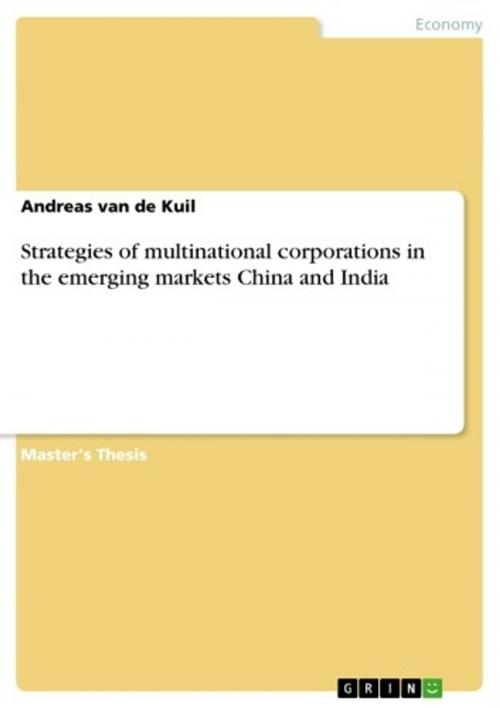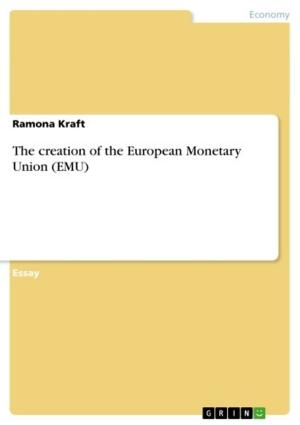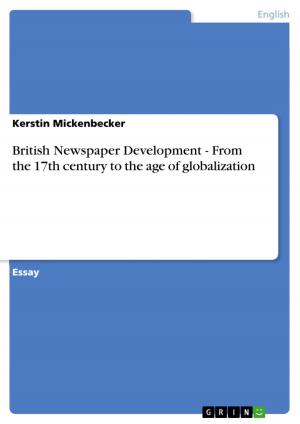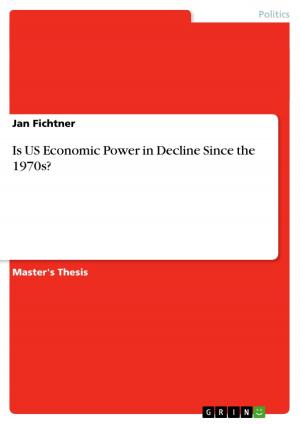Strategies of multinational corporations in the emerging markets China and India
Nonfiction, Social & Cultural Studies, Political Science, Politics, Economic Policy| Author: | Andreas van de Kuil | ISBN: | 9783640200924 |
| Publisher: | GRIN Publishing | Publication: | November 4, 2008 |
| Imprint: | GRIN Publishing | Language: | English |
| Author: | Andreas van de Kuil |
| ISBN: | 9783640200924 |
| Publisher: | GRIN Publishing |
| Publication: | November 4, 2008 |
| Imprint: | GRIN Publishing |
| Language: | English |
Master's Thesis from the year 2008 in the subject Business economics - Economic Policy, grade: 1,3, European School of Business Reutlingen, 100 entries in the bibliography, language: English, abstract: In recent years, China and India have become two of the most important markets in terms of sales, low-cost manufacturing and R&D operations. The future progress will increase the competitive advantage for both countries and attract MNC's from all over the world to invest. Nevertheless, success is not guaranteed, even with the large business opportunities that China and India provide. A MNC has to be aware of various challenges that both countries pose, such as government interventions, underdeveloped infrastructures or copyright violations. Hence, MNC's need efficient strategies in order to compete and improve their position in these markets. Particularly the implementation of an efficient innovation and knowledge strategy has become a crucial aspect. Effectiveness in local product adjustments, globalizing R&D, tailoring talent management, mastering the complexity of global value chains, and managing risks are success factors that have to be considered. This, however, is not an easy task. Multiple failures of MNC's in China and India demonstrate that it is important to adapt a company's strategy to the local customer needs and to obtain a competitive advantage in the field of innovation. The purpose of this master thesis is to discuss all these aspects and present crucial factors for the implementation of an efficient strategy for the two markets China and India, with a focus on innovation and knowledge. Obviously, there are limits to the scope of this dissertation. Some aspects as for example the cultural background of both countries, governmental restrictions, the role of outsourcing or the availability of financial resources have either not been considered or are only discussed briefly. Moreover, this dissertation will only provide a general overview as the business environment of MNC's in each market will differ.
Master's Thesis from the year 2008 in the subject Business economics - Economic Policy, grade: 1,3, European School of Business Reutlingen, 100 entries in the bibliography, language: English, abstract: In recent years, China and India have become two of the most important markets in terms of sales, low-cost manufacturing and R&D operations. The future progress will increase the competitive advantage for both countries and attract MNC's from all over the world to invest. Nevertheless, success is not guaranteed, even with the large business opportunities that China and India provide. A MNC has to be aware of various challenges that both countries pose, such as government interventions, underdeveloped infrastructures or copyright violations. Hence, MNC's need efficient strategies in order to compete and improve their position in these markets. Particularly the implementation of an efficient innovation and knowledge strategy has become a crucial aspect. Effectiveness in local product adjustments, globalizing R&D, tailoring talent management, mastering the complexity of global value chains, and managing risks are success factors that have to be considered. This, however, is not an easy task. Multiple failures of MNC's in China and India demonstrate that it is important to adapt a company's strategy to the local customer needs and to obtain a competitive advantage in the field of innovation. The purpose of this master thesis is to discuss all these aspects and present crucial factors for the implementation of an efficient strategy for the two markets China and India, with a focus on innovation and knowledge. Obviously, there are limits to the scope of this dissertation. Some aspects as for example the cultural background of both countries, governmental restrictions, the role of outsourcing or the availability of financial resources have either not been considered or are only discussed briefly. Moreover, this dissertation will only provide a general overview as the business environment of MNC's in each market will differ.















